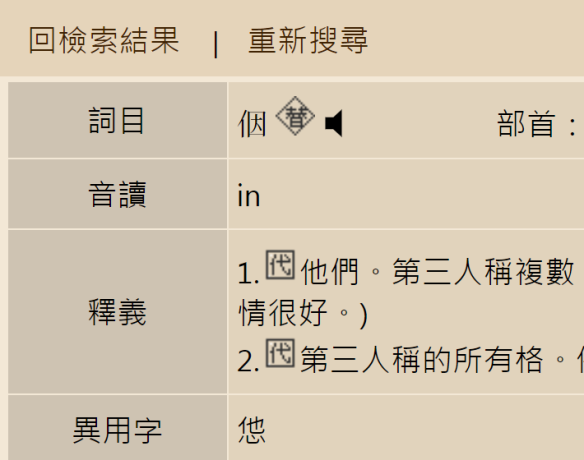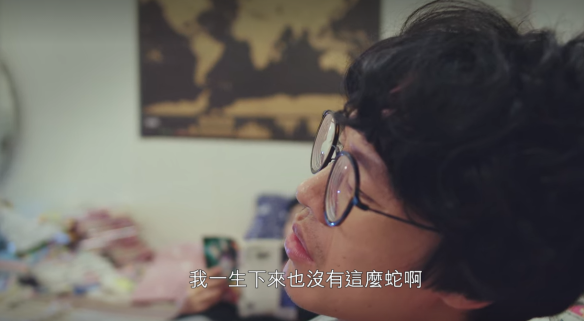Another joke today from ‘A Boy Name Flora A‘ this one of the blue variety (or yellow as they say in Chinese).
The translator has tried to compensate for not being able to translate the joke fully by creating a different joke in English with the same material. It’s quite artfully done although the joke doesn’t make as much sense with reference to the character and is a tad less graphic.
-「安宮主委 鄭夾贈」
-夾你的屁股啦,爽啊!一個人,「叉」四個,叫做爽。一個人插四個,那真的很爽。
First the kid is reading the words written on the van “Donated by Rui An Temple Commisioner Zheng Shuang” out loud to the older guy, but he mistakenly reads 「爽」(Shuang) as 「夾」 (jiā), as part of the name Zheng Shuang. When not used in names “夾” (jiā) means “to pinch” and “爽” (shuǎng) means joy or pleasure, generally with a heavy sexual connotation.
The older guy then replies “夾你的屁股啦” / “‘Pinch’, my arse!”, which is also funny, because it can be read as “Pinch my arse!”. He then points out the differences between the character 「夾」 (jiā) and the character “爽” (shuǎng), by describing 「夾」 (jiā) as a person radical (大) with two 叉 (乂) parts, even though the actual form is 「人」. Then he describes the character “爽” (shuǎng) as a person radical (大) with four 叉 (乂) parts. As 「叉」(chā) which represents this shape 「乂」 in the character is a homonym for 「插」(chā) meaning to insert in Mandarin, the sentence can be interpreted another way: “If you insert (插) four (implication is penises) in one person, that’s real pleasure (「爽」shuǎng). Although the last 「爽」(shuǎng) he pronounces using its Taiwanese pronunciation sóng.


The translator has tried to compensate in the English with a joke about exes:
-“Donated by Chairman of Rui An Temple Jia Zheng”
-That’s not “Jia,” dumbass. It’s “Shuang.”
-It looks like a man in the middle
with four “Xs.”
This character is called “Shuang.”
One man with four exes.
That’d be fun.
I think that this is a decent attempt to try and conserve the humor of the situation, as it can be read as sarcasm, but the English audience don’t know the relation between fun and shuang unfortunately.





